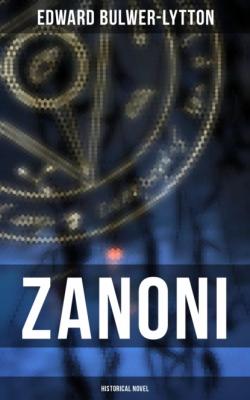ТОП просматриваемых книг сайта:
Zanoni (Historical Novel). Эдвард Бульвер-Литтон
Читать онлайн.Название Zanoni (Historical Novel)
Год выпуска 0
isbn 4064066395797
Автор произведения Эдвард Бульвер-Литтон
Жанр Языкознание
Издательство Bookwire
BOOK VI. — SUPERSTITION DESERTING FAITH.
BOOK VII. — THE REIGN OF TERROR.
CHAPTER 7.XVII. The Seventeenth and Last.
BOOK I. — THE MUSICIAN.
Due Fontane
Chi di diverso effeto hanno liquore!
“Ariosto, Orland. Fur.” Canto 1.7.
(Two Founts
That hold a draught of different effects.)
CHAPTER 1.I.
Vergina era
D’ alta belta, ma sua belta non cura:
. …
Di natura, d’ amor, de’ cieli amici
Le negligenze sue sono artifici.
“Gerusal. Lib.,” canto ii. xiv.-xviii.
(She was a virgin of a glorious beauty, but regarded not her
beauty … Negligence itself is art in those favoured by Nature, by
love, and by the heavens.)
At Naples, in the latter half of the last century, a worthy artist named Gaetano Pisani lived and flourished. He was a musician of great genius, but not of popular reputation; there was in all his compositions something capricious and fantastic which did not please the taste of the Dilettanti of Naples. He was fond of unfamiliar subjects into which he introduced airs and symphonies that excited a kind of terror in those who listened. The names of his pieces will probably suggest their nature. I find, for instance, among his MSS., these titles: “The Feast of the Harpies,” “The Witches at Benevento,” “The Descent of Orpheus into Hades,” “The Evil Eye,” “The Eumenides,” and many others that evince a powerful imagination delighting in the fearful and supernatural, but often relieved by an airy and delicate fancy with passages of exquisite grace and beauty. It is true that in the selection of his subjects from ancient fable, Gaetano Pisani was much more faithful than his contemporaries to the remote origin and the early genius of Italian Opera.
That descendant, however effeminate, of the ancient union between Song and Drama, when, after long obscurity and dethronement, it regained a punier sceptre, though a gaudier purple, by the banks of the Etrurian Arno, or amidst the lagunes of Venice, had chosen all its primary inspirations from the unfamiliar and classic sources of heathen legend; and Pisani’s “Descent of Orpheus” was but a bolder, darker, and more scientific repetition of the “Euridice” which Jacopi Peri set to music at the august nuptials of Henry of Navarre and Mary of Medicis.* Still, as I have said, the style of the Neapolitan musician was not on the whole pleasing to ears grown nice and euphuistic in the more dulcet melodies of the day; and faults and extravagances easily discernible, and often to appearance wilful, served the critics for an excuse for their distaste. Fortunately, or the poor musician might have starved, he was not only a composer, but also an excellent practical performer, especially on the violin, and by that instrument he earned a decent subsistence as one of the orchestra at the Great Theatre of San Carlo. Here formal and appointed tasks necessarily kept his eccentric fancies in tolerable check, though it is recorded that no less than five times he had been deposed from his desk for having shocked the conoscenti, and thrown the whole band into confusion, by impromptu variations of so frantic and startling a nature that one might well have imagined that the harpies or witches who inspired his compositions had clawed hold of his instrument.

